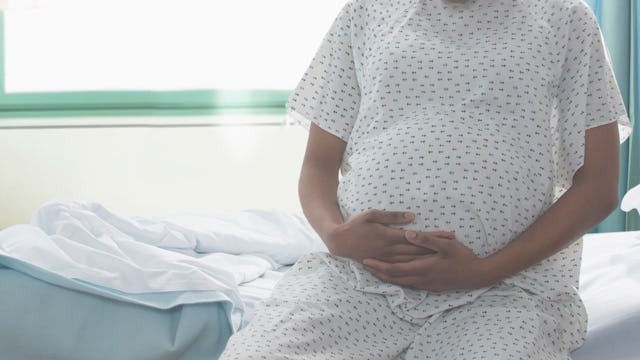New Research Believes PPD Can Be Prevented

Doctors should recommend counseling to at-risk women even if they’re still pregnant
If you’ve suffered from postpartum depression, you know the feelings of anxiety, anger, physical pain, and sadness can be all-consuming. But there is some good news for women in the future — they may be able to get the help they need before they suffer from its symptoms, while women are still pregnant.
According to research, one in seven women suffer from postpartum depression. This week the U.S. Preventative Services Task Force published recommendations in The Journal of the American Medical Association (JAMA) requested doctors “refer pregnant and postpartum persons who are at increased risk of perinatal depression to counseling interventions.”
By recognizing women who may develop depression and referring them to treatment like cognitive-behavioral and interpersonal therapy, the hope is some of those women may not develop PPD or have more limited symptoms than women who do not receive treatment.
Some risk factors to watch out for are pregnant or postpartum women who have a previous history of depression, teen mothers, moms of multiples, family history of depression, and minimal social support, among other factors.
Postpartum depression is a major, and often untreated, issue impacting new mothers. According to the CDC, as many as one in nine women suffer from the disease (and as many as one in five depending on location and socioeconomic status) and for those who suffer, it can be a debilitating and life-changing experience.
“We can prevent this devastating illness and it’s about time that we did,” says clinical psychologist and researcher Karina Davidson, who is a member of the task force and helped write the recommendations.
I had postpartum depression after my second pregnancy and it hit me like a freight train. It felt unexpected because I had no issues with my first child and I didn’t even realize how bad it was until I was walking through a park one day crying and remember thinking so clearly, “I’m going to leave him here.” I didn’t feel like I could talk to anyone and believed I was a complete failure as a mother. Postpartum depression is isolating, frightening, and wasn’t something my doctor even asked me about, before or after delivery.
The stakes aren’t just high for mothers. According to study published in the Journal of the American Academy of Child and Adolescent Psychiatry (JAACAP), “Exposure to early and chronic maternal depression markedly increases a child’s susceptibility to psychopathology and social-emotional problems, including social withdrawal, poor emotion regulation, and reduced empathy to others.”
“We can prevent this devastating illness and it’s about time that we did,” researcher Karina Davidson, who is a member of the task force and helped write the recommendations, said of the findings. “We actually have evidence now that if you find women who are not currently depressed but who are at risk for becoming depressed during pregnancy or within a year after childbirth behavioral counseling can help them prevent getting this disease.”
There’s more work to do to develop specific screenings doctors can use to help identify women who may be predisposed, but this recommendation (and the attention it’s garnering) is a big step in the right direction.
This article was originally published on